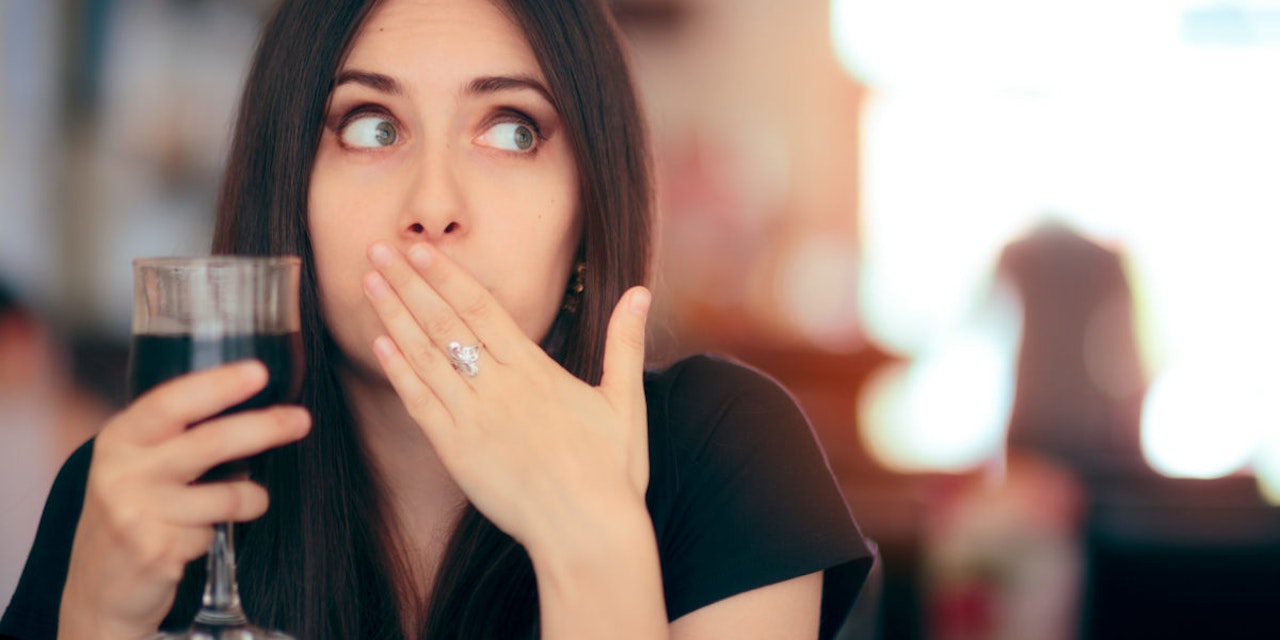
Cheers to a holiday, the end of the week, the end of the day…although alcohol is socially normal in many cultures, it’s still a depressive drug that can have negative effects on mental health when consumed in excess. Before you pour yourself another, consider the ways alcohol impacts your mental health.
How alcohol impacts your mental health
Our brain is a complex and amazing organ, influencing everything from body movement to behavior and mood. When we drink alcohol, it has a short-term depressant effect on our brain, decreasing or slowing function. It also interferes with the balance of those neurotransmitters, or brain chemicals (1).
Initially, when we drink this can give a sense of calmness or relaxation, but once it wears off the original stress, emotions, or tough thoughts often come flooding back. This is one reason why alcohol may be addicting; promoting a cycle of avoidance then dependance.
Drinking excessive amounts of alcohol on a regular basis may cause some mental health concerns. Keep in mind that if any of these mental struggles consistently interfere with your daily functions and relationships, it’s important to consult your doctor or mental health practitioner.
Anxiety
Anxiety includes feelings of overwhelm, panic, body aches, and difficulty sleeping (2). Since alcohol has an impact on our central nervous system it may mimic feelings or emotions that are similar to anxiety. Some people may feel anxious when they drink while others may experience anxiety associated with blood sugar crashes and hangover symptoms.
Depression
Depression is defined as a persistent lack of motivation, interest, or pleasure in the things that typically bring joy (3). Since alcohol is a depressive substance, drinking can enhance these feelings.
Cognitive function
Alcohol causes both short term and long term interference with cognitive functioning. In young adults, it's been suggested that long-term alcohol abuse is linked to lower cognitive performance while low or moderate drinking effects are not as clear (4). Heavy drinking has been associated with negative effects such as memory difficulties and increased risk for disease such as dementia (5).
Sleep issues
Some people consider a night cap when they think of falling asleep. Yet while alcohol may make it seem easier to fall asleep, it ends up disrupting sleep quality. Drinking before bed can prevent the restorative REM (rapid eye movement sleep) and promote waking more often. Chronic alcohol use can also result in sleep problems such as insomnia or sleep apnea (6).
Mental self care routine: boost your brain health
Reduce alcohol
Keep in mind that everyone responds differently to the effects of alcohol. If you can keep it to a drink or two, without it impacting your sleep or mental wellbeing, enjoy it on occasion. But if you have a medical condition or find yourself struggling to stop after you start, consider sticking to non alcoholic beverages.
To reduce the risk of mental health concerns or any health related issues, the Dietary Guidelines for Americans recommends sticking to two drinks or less in a day for men or one drink a day for women (7). If you do drink, try to have it with a healthy meal or snack to keep blood sugar levels more stable.
Get good quality sleep
Poor mental health can make it difficult to sleep well, while lack of sleep tends to make mental health worse. The Sleep Foundation points out that brain activity during sleep has big impacts on mental and emotional wellbeing (8).
Some top tips to improve your sleep include:
- Going to bed and waking up at the same time.
- Keeping your bedroom cool, quiet, and dark.
- Giving yourself at least 30 minutes without electronics (phone, TV, computers) before bed.
- Avoiding caffeine or alcohol at least a few hours before bed (9).
Make a mocktail
This delicious Green Tea Pineapple Mocktail can keep you hydrated, further benefiting your mental sharpness. It contains freshly brewed green tea which has been suggested to boost mood, brain activity, and function (10). For more delicious alcohol free recipes, check out Lifesum!
Ingredients:
- 2 tbsp aquafaba
- 2 oz / 60 ml freshly brewed green tea
- ¾ oz / 20 ml agave
- ¾ oz / 20 ml fresh lime juice
- ½ oz /15 ml pineapple juice
Instructions:
- Add aquafaba, green tea, agave syrup, lime juice, pineapple juice, and ice in a cocktail shaker.
- Shake until chilled. Strain into a coupe glass and garnish with lime zest
If you or someone you know is having difficulty with alcohol or mental health, talk to your healthcare practitioner, or reach out to local addiction support or mental health services.
10 references (hide)
All of the content and media on Lifesum is created and published for information purposes only. It is not intended to be used as a substitute for medical advice or treatment. Users should always consult with a doctor or other health care professional for medical advice. If you have or think you are at risk of developing an eating disorder, do not use the Lifesum app and seek immediate medical help.